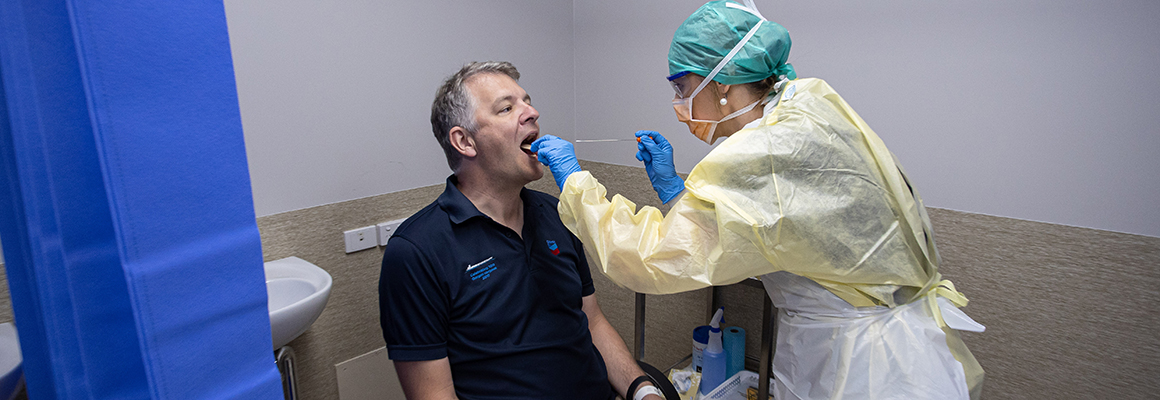feature collaborating with industry to detect and protect against COVID-19

The program involves a rapid polymerase chain reaction (PCR) test, a widely used, highly sensitive technique that detects COVID-19 RNA (a type of nucleic acid) using a swab test. It provides a faster indication of the presence of the virus compared to other tests, which use antibody detection. It can also detect the virus in people who may be asymptomatic.
Chevron Australia managing director Al Williams said the company’s priorities were the health and safety of its employees, families, contractors and the community as well as maintaining supplies of natural gas to Western Australia.
“Working with Curtin University to conduct PCR screening is an important step in protecting the health and safety of our workforce and community and builds upon the excellent work already being undertaken by our Health and Medical teams,” Mr Williams said.
Al Williams
chevron Australia managing director
Screening results will be included in the Western Australian Government’s DETECT Project, which aims to detect the prevalence and any re-emergence of COVID-19 in key sectors of the Western Australian community, including the resources sector.
Chevron Australia is collaborating with the WA Chamber of Minerals and Energy, Curtin University, the Harry Perkins Institute and resource companies including BHP, Mineral Resources Limited, Rio Tinto and Woodside on the DETECT FIFO project.
Western Australian Premier Mark McGowan thanked the resources sector for going to ‘great lengths’ to protect its workforce so the industry could continue and help the economy recover.
“This is a great example of companies coming up with innovative and amazing ways of dealing with a very difficult situation,” Mr McGowan said.
"The cooperativeness and sense of WA first thinking that has gone on here has been absolutely terrific, and I’d like to thank everyone who has been involved in making this work."
The DETECT FIFO project will have significant benefits in protecting fly-in, fly-out workers by identifying and managing positive cases, validating testing techniques and informing broader academic research in this area.
Find out more about how we are helping the community during COVID-19 >